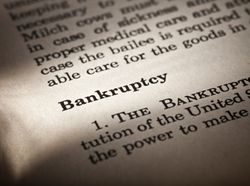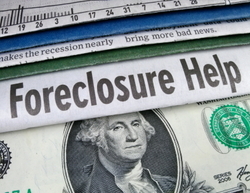Recently, a small debate has been brewing in the legal world about whether a person facing foreclosure should file bankruptcy before or after their foreclosure comes to a close. First of all, bankruptcy is not always the best option for someone facing foreclosure.
If filing bankruptcy is right for you, some attorneys recommend filing after your home has been foreclosed on. This should allow you to discharge the debt and will help you move on with your life. But this may also limit your options.
It has been suggested that filing bankruptcy before foreclosure may give you the option to fight the foreclosure post bankruptcy. You would “Surrender” your interest in the property to the Trustee, which gives him the option to liquidate the property subject to the mortgage. However, because the mortgage is often higher than the house is worth, the Trustee disclaims any interest. It is then up to the bank to continue the foreclosure process either during or after the bankruptcy. While the bankruptcy goes on you may still be able to remain in your home (this may effect your bankruptcy exemptions). Theoretically, you will remain there essentially rent-free, as you will not be making your mortgage payments during this time. This could mean saving thousands of dollars in unpaid mortgage payments, depending on how long the bankruptcy takes. At the end of the bankruptcy you should have no unsecured debt and would have savings to use in negotiations with the bank. What’s even more interesting is that you would no longer be personally liability for the mortgage, so if negotiations failed, you could just walk away.
 Jacksonville Bankruptcy Lawyer Blog
Jacksonville Bankruptcy Lawyer Blog



 In a Chapter 13 bankruptcy, a
In a Chapter 13 bankruptcy, a  There are many reasons that it would be advantageous to file for bankruptcy, but here are some of the most common reasons:
There are many reasons that it would be advantageous to file for bankruptcy, but here are some of the most common reasons: An attempt to pass a law that would allow Bankruptcy judges to modify mortgages never made it passed the Senate. So a judge cannot automatically modify the terms of your existing mortgage. However, filing bankruptcy in Florida can help in other ways.
An attempt to pass a law that would allow Bankruptcy judges to modify mortgages never made it passed the Senate. So a judge cannot automatically modify the terms of your existing mortgage. However, filing bankruptcy in Florida can help in other ways.